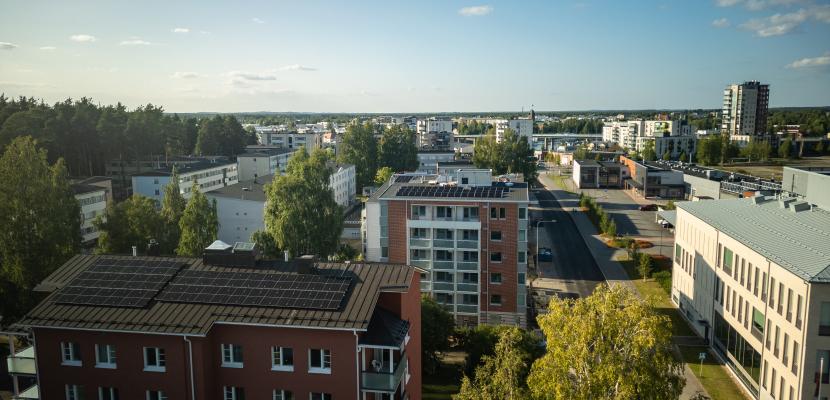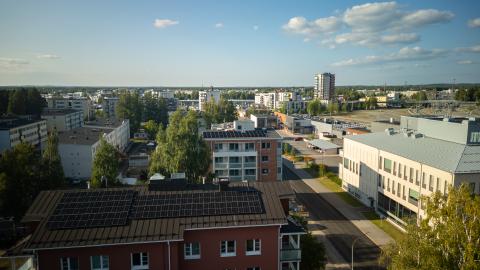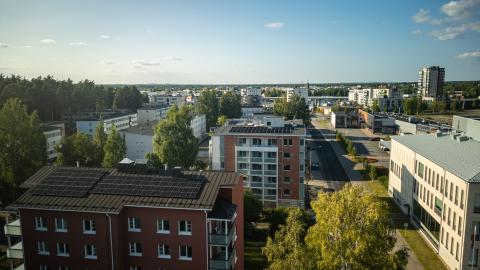
Joensuun Elli student dormitory pilots virtual energy community for higher energy self-sufficiency

About this good practice
Joensuun Elli Oy is a municipal student housing company having 2,700 student apartments in 40 locations. Company is piloting the new local virtual energy community concept operating within a single distribution grid area. The results of the 3-year pilot are utilized for implementing the new EU Energy Community Directive into Finnish legislation and for developing of market player’s knowledge, tools and methods for developing services for energy communities. The pilot has a special permit by the Finnish Energy Authority as it contradicts current legislation in several ways.
Virtual energy community pilot consists of 80 panel solar PV system installed in one student dormitory in optimized roof conditions, and another student house located 2 km distance which utilizes the excess power from the solar power system. The surplus electricity is netted virtually to another student house. In traditional case producer (Student house 1) needs to sell the excess energy to electricity company, which is selling it to the Student house 2.
Karelia University of Applied Sciences (Karelia UAS) provides the system for analyzing the energy data provided by electricity distribution company Caruna. Also, it develops the monitoring, forecasting and optimizing concepts utilizing eg. energy price and weather forecast data. The third key partner in pilot is the electricity seller Pohjois-Karjalan Sähkö Oy, which compensates the produced surplus energy. Project ends by the end of Year 2025.
Expert opinion
Resources needed
The 32 kWp solar PV system costed about 36,000 euros installed. The cost of next generation electricity metering equipment for two houses and 230 apartments is provided by the electricity distributor. The ICT system for data monitoring and analysis by NKUAS is a non-commercial development tool.
Evidence of success
Solar PV system produces annually about 27 MWh, which is 10-25% over the on-line consumption in the Student house 1. The surplus is used as own production in the Student house 2, which has poorer conditions for solar power.
Pilot provides all the partners in electricity use and distribution chain a test bench for developing their data systems, technology and services to meet the requirements of the new Energy Community Directive, and to implement it into Finnish legislation by 2026.
Potential for learning or transfer
The pilot helps Joensuun Elli and other organizations to define their potential for increasing energy self-sufficiency by expanding own solar power production and for optimizing their investments for enlarging the virtual energy community. For energy sellers and distributors the pilot demonstrates the Energy Community Directive’s requirements for energy metering and data management and helps them to support energy communities in practice.
For Ministries and Energy Authority the pilot sets practical test for finding administrative barriers in current legislation preventing virtual energy communities passing property borders. It also demonstrates challenges in legislation and data management linked to more complex virtual Energy Communities, in which communities may eg. operate over several distribution grids or have several prosumer organizations. Thus, the pilot can serve also as a valuable example for other countries implementing the directive into their national legislation.
Further information
Images
Good practice owner
You can contact the good practice owner below for more detailed information.
Opiskelija-asunnot Oy Joensuun Elli



